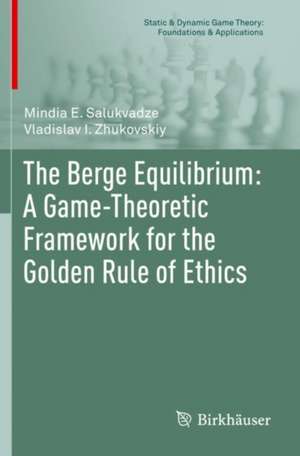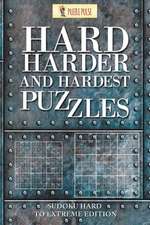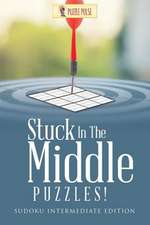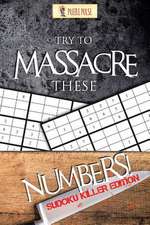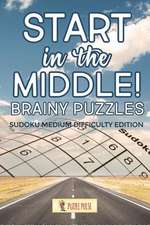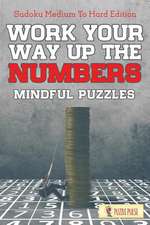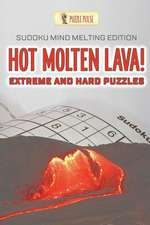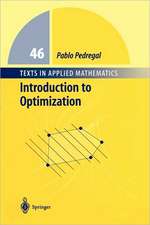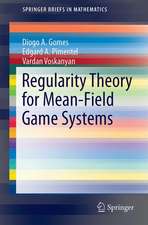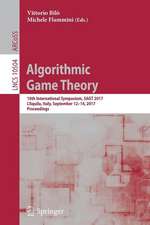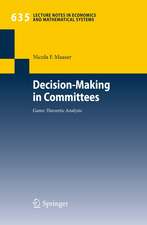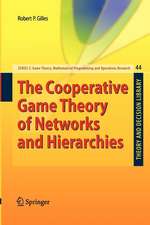The Berge Equilibrium: A Game-Theoretic Framework for the Golden Rule of Ethics: Static & Dynamic Game Theory: Foundations & Applications
Autor Mindia E. Salukvadze, Vladislav I. Zhukovskiyen Limba Engleză Paperback – 26 aug 2021
The Golden Rule of ethics, which appears in Christianity, Judaism, Islam, Buddhism, Confucianism and other world religions, states the following: “Behave towards others as you would like them to behave towards you." In any game, each party of conflict seeks to maximize some payoff. Therefore, for each player, the Golden Rule is implemented through the maximization of his/her payoff by all other players, which matches well with the concept of the Berge equilibrium.
The approach presented here will be of particular interest to researchers (including undergraduates and graduates) and economists focused on decision-making under complex conflict conditions. The peaceful resolution of conflicts is the cornerstone of the approach: as a matter of fact, the Golden Rule precludes military clashes and violence. In turn, the new approach requires new methods; in particular, the existence problems are reduced to saddle point design for the Germeier convolution of payoff functions, with further transition to mixed strategies in accordance with the standard procedure employed by E. Borel, J. von Neumann, J. Nash, and their followers. Moreover, this new approach has proven to be efficient and fruitful with regard to a range of other important problems in mathematical game theory, which are considered in the Appendix.
| Toate formatele și edițiile | Preț | Express |
|---|---|---|
| Paperback (1) | 726.85 lei 6-8 săpt. | |
| Springer International Publishing – 26 aug 2021 | 726.85 lei 6-8 săpt. | |
| Hardback (1) | 732.84 lei 6-8 săpt. | |
| Springer International Publishing – 19 feb 2020 | 732.84 lei 6-8 săpt. |
Preț: 726.85 lei
Preț vechi: 886.41 lei
-18% Nou
Puncte Express: 1090
Preț estimativ în valută:
139.10€ • 145.04$ • 115.60£
139.10€ • 145.04$ • 115.60£
Carte tipărită la comandă
Livrare economică 21 martie-04 aprilie
Preluare comenzi: 021 569.72.76
Specificații
ISBN-13: 9783030255480
ISBN-10: 3030255484
Ilustrații: XXVI, 272 p. 34 illus., 1 illus. in color.
Dimensiuni: 155 x 235 mm
Greutate: 0.42 kg
Ediția:1st ed. 2020
Editura: Springer International Publishing
Colecția Birkhäuser
Seria Static & Dynamic Game Theory: Foundations & Applications
Locul publicării:Cham, Switzerland
ISBN-10: 3030255484
Ilustrații: XXVI, 272 p. 34 illus., 1 illus. in color.
Dimensiuni: 155 x 235 mm
Greutate: 0.42 kg
Ediția:1st ed. 2020
Editura: Springer International Publishing
Colecția Birkhäuser
Seria Static & Dynamic Game Theory: Foundations & Applications
Locul publicării:Cham, Switzerland
Cuprins
- What Is the Golden Rule of Ethics?. - Static Case of the Golden Rule. - The Golden Rule Under Uncertainty. - Applications to Competitive Economic Models. - New Approaches to the Solution of Noncooperative Games and Multicriteria Choice Problems. - Conclusion.
Textul de pe ultima copertă
The goal of this book is to elaborate on the main principles of the theory of the Berge equilibrium by answering the following two questions: What are the basic properties of the Berge equilibrium? Does the Berge equilibrium exist, and how can it be calculated?
The Golden Rule of ethics, which appears in Christianity, Judaism, Islam, Buddhism, Confucianism and other world religions, states the following: “Behave towards others as you would like them to behave towards you." In any game, each party of conflict seeks to maximize some payoff. Therefore, for each player, the Golden Rule is implemented through the maximization of his/her payoff by all other players, which matches well with the concept of the Berge equilibrium.
The approach presented here will be of particular interest to researchers (including undergraduates and graduates) and economists focused on decision-making under complex conflict conditions. The peaceful resolution of conflicts is the cornerstone of the approach: as a matter of fact, the Golden Rule precludes military clashes and violence. In turn, the new approach requires new methods; in particular, the existence problems are reduced to saddle point design for the Germeier convolution of payoff functions, with further transition to mixed strategies in accordance with the standard procedure employed by E. Borel, J. von Neumann, J. Nash, and their followers. Moreover, this new approach has proven to be efficient and fruitful with regard to a range of other important problems in mathematical game theory, which are considered in the Appendix.
The approach presented here will be of particular interest to researchers (including undergraduates and graduates) and economists focused on decision-making under complex conflict conditions. The peaceful resolution of conflicts is the cornerstone of the approach: as a matter of fact, the Golden Rule precludes military clashes and violence. In turn, the new approach requires new methods; in particular, the existence problems are reduced to saddle point design for the Germeier convolution of payoff functions, with further transition to mixed strategies in accordance with the standard procedure employed by E. Borel, J. von Neumann, J. Nash, and their followers. Moreover, this new approach has proven to be efficient and fruitful with regard to a range of other important problems in mathematical game theory, which are considered in the Appendix.
Caracteristici
Suggests a possible way to resolve conflicts without violence Combines the Berge equilibrium with the Golden Rule Puts the Golden Rule into a Game Theory perspective
